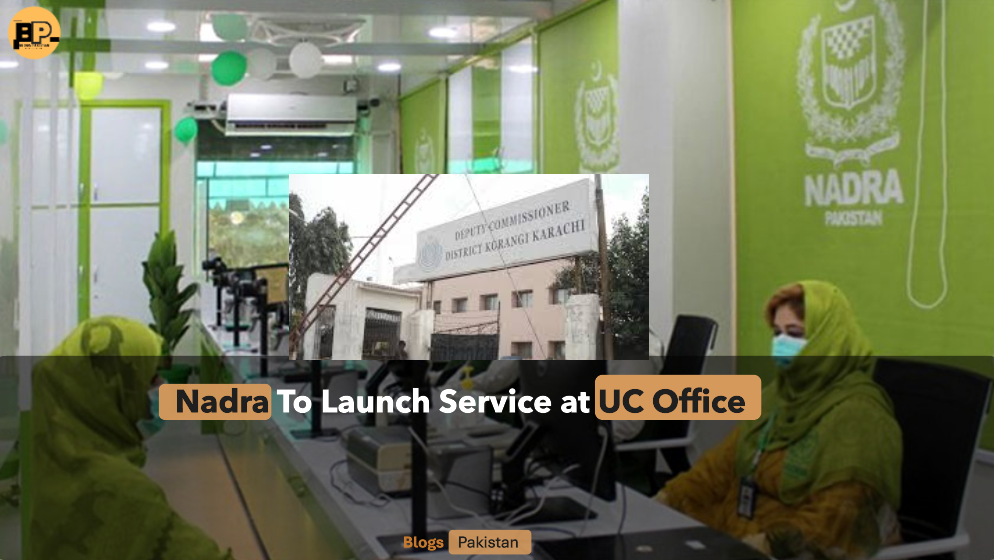NADRA to Launch NIC Services at Union Council Town Offices: A Game-Changer for Rural Access
In a significant move impacting millions of citizens, Pakistan’s National Database and Registration Authority (NADRA) has announced the discontinuation of Computerized National Identity Card (CNIC) services at post offices across the country. This decision marks a shift in how citizens access critical identity documentation services, which are essential for everything from opening bank accounts to voting in elections. While the move has sparked mixed reactions, understanding its implications, alternatives, and the rationale behind it is crucial for affected individuals.
Why Shift Services to Union Council Offices?
The decision to roll out NIC services at UC offices reflects NADRA’s responsiveness to public feedback and its commitment to equitable service delivery. Union Councils, as the smallest administrative units in Pakistan, are deeply embedded in local communities, making them ideal hubs for citizen-centric services. Here’s the rationale behind the shift:
Why Did NADRA Make This Decision?
NADRA has not explicitly detailed the reasons for halting CNIC services at post offices. However, the decision aligns with broader trends in governance and service delivery. Here are some potential factors driving this change:
- Streamlining Operations: Managing CNIC services through multiple channels, including post offices, may have led to administrative complexities. By centralizing operations, NADRA could improve efficiency, reduce redundancies, and ensure uniformity in service quality.
- Digital Transformation Push: Pakistan has been accelerating its digitalization efforts, and NADRA itself has introduced online portals and mobile apps for CNIC-related services. Phasing out physical services at post offices may encourage citizens to adopt digital platforms, aligning with the government’s vision of a tech-driven society.
- Security and Data Integrity: Post offices, while convenient, may lack the advanced technological infrastructure required to handle sensitive biometric data securely. Centralized NADRA offices are better equipped to prevent fraud and ensure data protection.
- Cost Optimization: Maintaining partnerships with post offices likely incurred operational costs. Redirecting resources to NADRA’s own centers or digital platforms could be a cost-saving measure.
Whatever the rationale, the discontinuation signals a pivot toward modernizing identity management systems in Pakistan.
Impact on Citizens: Convenience vs. Challenges
For decades, post offices served as accessible hubs for CNIC services, particularly in rural and remote areas where NADRA centers are scarce. Their discontinuation poses both challenges and opportunities:
The Challenges
- Reduced Accessibility: Citizens in underserved regions now face longer travel times to reach NADRA centers. For daily wage workers or those with mobility issues, this could mean delays in obtaining or renewing CNICs.
- Increased Burden on NADRA Centers: With post offices no longer分担ing the load, existing NADRA offices may experience overcrowding, longer wait times, and slower processing.
- Digital Literacy Barriers: While online services are an alternative, Pakistan’s digital divide—particularly in rural areas—means many citizens lack the skills or internet access to navigate e-portals independently.
The Silver Lining
On the flip side, the move could accelerate the adoption of NADRA’s online services, which offer several advantages:
- 24/7 Accessibility: Apply for a new CNIC, renew an expired card, or update information anytime, anywhere.
- Reduced Corruption Risks: Digital processes minimize opportunities for intermediaries to exploit applicants.
- Faster Tracking: Applicants can monitor their application status in real-time via SMS or online portals.
Alternatives to Post Office CNIC Services
Citizens now have three primary avenues to access CNIC services:
1. Visit a NADRA Registration Center (NRC)
NADRA operates over 800 registration centers nationwide. To mitigate overcrowding, consider these tips:
- Book Appointments Online: Use the Pak Identity app or NADRA’s website to schedule visits.
- Prepare Documents in Advance: Carry original copies of supporting documents (e.g., birth certificates, utility bills) to avoid multiple trips.
- Check Service Timings: Some centers offer dedicated slots for women, seniors, or differently-abled individuals.
2. Use NADRA’s E-Services Portal
The NADRA E-Services platform (https://id.nadra.gov.pk/) allows users to:
- Apply for new CNICs (for first-time applicants aged 18+).
- Renew expired cards.
- Request modifications (e.g., updating marital status or addresses).
- Pay fees via credit/debit cards or mobile wallets.
3. Leverage Mobile Registration Vans
NADRA periodically deploys mobile vans to remote areas. Follow their social media channels or contact local authorities to stay informed about schedules.
Public Reaction: Criticism and Support
The policy change has divided public opinion. Critics argue that discontinuing post office services exacerbates inequities, especially for marginalized communities. Social media users from rural regions have highlighted the hardships of traveling long distances to NADRA centers, with some calling for hybrid models (e.g., retaining select post office counters).
Conversely, tech-savvy urban populations welcome the push toward digitization. They emphasize the long-term benefits of reducing bureaucratic inefficiencies and enhancing data security.
NADRA has yet to address these concerns publicly but has reiterated its commitment to “ensuring seamless service delivery through upgraded channels.”
What Services Will UC Offices Provide?
While full details are yet to be released, UC offices are expected to offer basic NIC-related services, including:
- New CNIC Applications (for citizens aged 18 and above).
- Renewals and Modifications (e.g., updating marital status, addresses, or correcting errors).
- Issuance of Tracking Numbers for applications processed online.
- Biometric Verification to ensure data accuracy and prevent fraud.
More complex services, such as overseas Pakistani NICOP applications or child registration certificates, may still require visits to dedicated NADRA centers.
Benefits for Citizens: A Closer Look
The introduction of UC-based NIC services promises transformative benefits, particularly for marginalized groups:
1. Enhanced Accessibility for Rural Populations
Rural residents, who make up nearly 63% of Pakistan’s population, often lack reliable transportation to distant NADRA offices. UC offices—located within walking distance for many—will empower women, the elderly, and low-income households to obtain critical documentation independently.
2. Faster Processing Times
With decentralized services, UC staff can verify local details (e.g., proof of residence) more efficiently, reducing delays caused by bureaucratic red tape.
3. Combating Identity Fraud
Local UC officials are better positioned to authenticate applicants’ backgrounds, minimizing risks of fraudulent CNIC issuance—a persistent challenge in urban centers.
4. Economic Empowerment
Easy access to CNICs enables rural citizens to open bank accounts, claim social welfare benefits, and participate in electoral processes, fostering financial and civic inclusion.
A Step Toward Inclusive Governance
NADRA’s discontinuation of CNIC services at post offices underscores a transformative phase in Pakistan’s identity management ecosystem. While the transition may pose short-term hurdles, it also opens doors to a more efficient, transparent, and secure future. By embracing online platforms and holding authorities accountable for inclusive solutions, citizens and institutions can collectively navigate this change.
NADRA’s decision to launch NIC services at UC offices marks a paradigm shift in Pakistan’s identity management framework. By leveraging local governance structures, the agency is poised to democratize access to a service that forms the bedrock of citizenship rights—from voting to property ownership. While challenges around implementation remain, the move signals a growing recognition that technology-driven solutions must coexist with grassroots accessibility.
For updates, visit NADRA’s official website or follow their verified social media channels. Stay informed, stay prepared!










